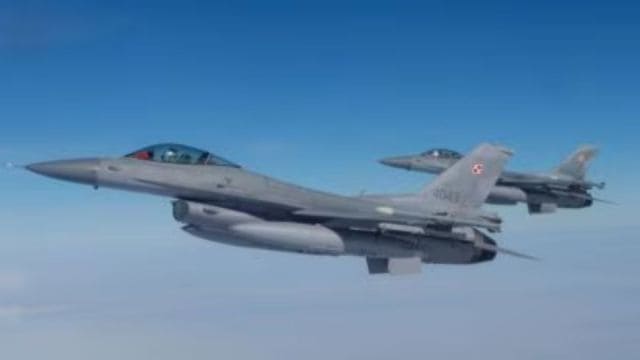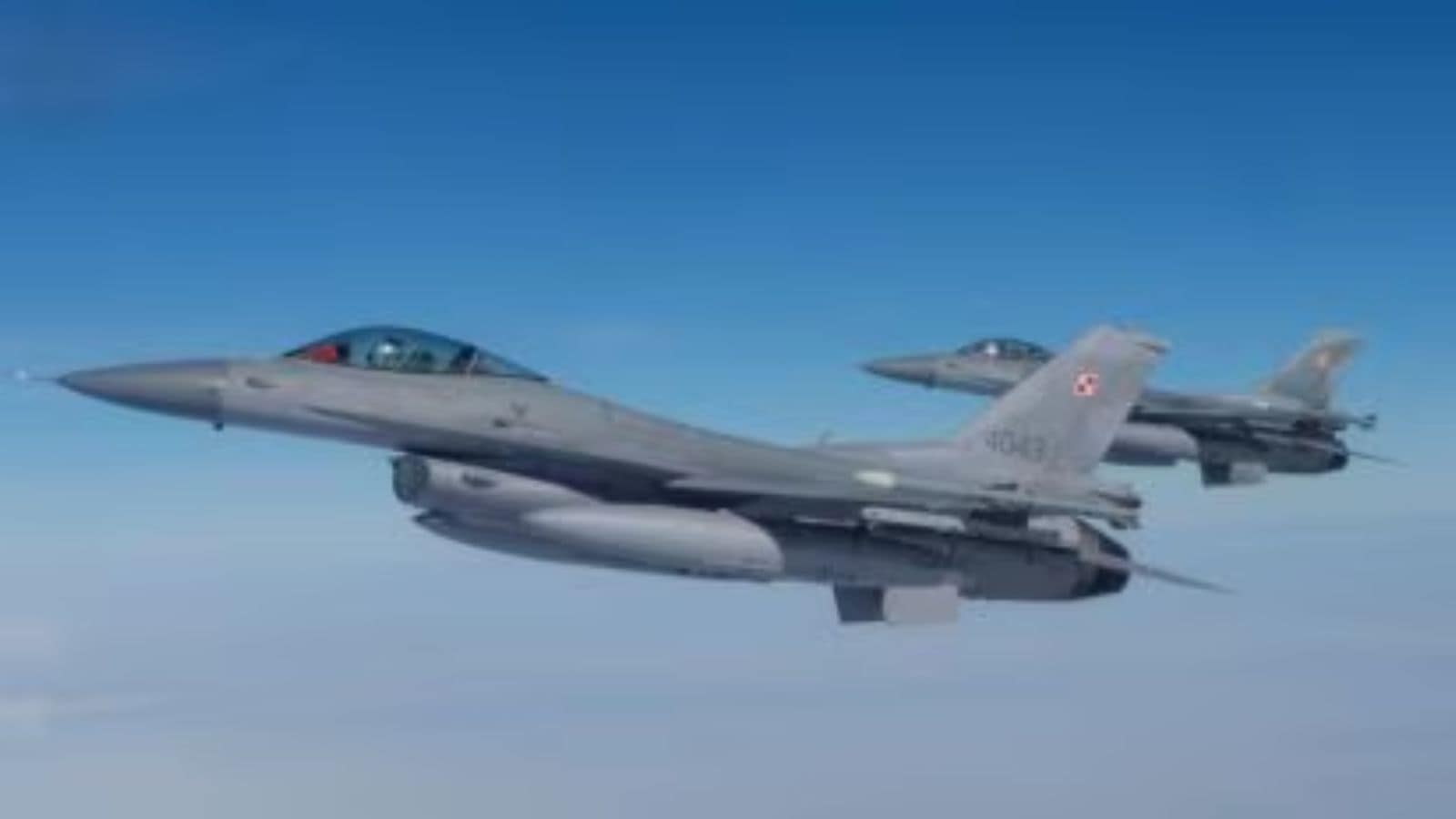 NATO stated the new assets include “intelligence, surveillance, and reconnaissance platforms and at least one air-defence frigate.” (Photo: AP/ Representational)
NATO stated the new assets include “intelligence, surveillance, and reconnaissance platforms and at least one air-defence frigate.” (Photo: AP/ Representational) NATO has said that it will upgrade its mission in the Baltic Sea with an air defence frigate and other assets after Denmark said that unidentified drones were spotted near the country’s military installations overnight after several incursions of its national airspace at airports in Copenhagen and other cities.
According to Denmark’s armed forces, unidentified drones were observed near the military installations in the country overnight on Saturday after several incursions were reported from airports and other critical infrastructure this week in the country. The Copenhagen airport was shut for several hours on Monday after several drones were spotted over its airspace.
In the following days last week, at least five smaller Danish airports, both civilian and military apart from Copenhagen airport, were shut down temporarily after unidentified drones were observed in their airspace. In response to the incidents in the Danish territory, NATO said it will “conduct even more enhanced vigilance with new multi-domain assets in the Baltic Sea region,” Reuters reported.
The military alliance stated the new assets include “intelligence, surveillance, and reconnaissance platforms and at least one air-defence frigate.” The new assets are set to enhance NATO’s “Baltic Sentry” mission which was launched in January after a series of incidents wherein power cables, telecom links and gas pipelines at the bottom of the Baltic Sea were damaged.
NATO had earlier launched its “Eastern Sentry” mission this month in order to enhance the defence of Europe’s eastern flank after Russian drone incursions were reported from Poland’s airspace and Warsaw had allegedly shot down Moscow’s drones with NATO’s aid.
Germany is also planning to take steps in order to defend itself against “high” threats from drones, country’s Interior Minister Alexander Dobrindt said on Saturday.
“There is a threat that can be classified as high when it comes to drones. It is an abstract threat, but very concrete in individual cases,” Dobrindt said in Berlin.
(with inputs from Reuters)

